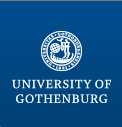University of Gothenburg
Type of employment: Fixed-term employment, 2 years
Extent: 100 %
Location: Valand Academy, Gothenburg
First day of employment: 2016/9/1
Reference number: PER 2016/54
Valand Academy at the University of Gothenburg and the Hasselblad Foundation have a long-term partnership developing critical reflection on photography and its mediation. As part of this partnership, the Hasselblad Foundation is launching a research project on photography and human rights in Autumn 2016, and photo-based artists holding a PhD can apply to a two-year Post-Doctoral position at Valand Academy starting September 2016. The number of positions available is one.
The Hasselblad Foundation is an independent institution, based in Gothenburg, with a research library, a photography collection and an exhibition space. The foundation initiates and produces various forms of research projects in the history, theory and aesthetics of photography and collaborates with a range of scholars and institutions. The Hasselblad Foundation?s own research is often based on the photographic collection and archive as well as on the yearly recipients of the Hasselblad Award. More information can be found at www.hasselbladfoundation.org.
The current research in the field of photography at Valand Academy has a strong curatorial approach with a focus on the mediation of photography through exhibitions and publications, as well as an ambitious research program in the field of environmental studies. Research at Valand Academy has a dynamic milieu including film, fine art, literary composition, poetry and prose, and photography, and is primarily practice-based and practice-led. The Academy has around 90 employees and about 300 students studying on programs at the bachelor, master and doctoral level. More information about the Academy is available at www.akademinvaland.gu.se.
Applications to the position could address questions of the role of the photographic medium – both historically and currently – as social documentary, participatory photography, in citizen journalism, surveillance and ?sous-veillance?, political activism and artistic expressions, as well as in abuses of power and challenges to basic human rights.
Subject area
Photography, Photography and Human Rights
Specific subject description
Photography, with an emphasis on Photography and Human Rights
Job assignments
The position includes 80 percent research and 20 percent teaching and/or administrative duties. The candidate will be expected to contribute to the research and teaching environment at Valand Academy as well as the research and exhibition work at The Hasselblad Foundation, although the work base will be at Valand Academy. The candidate is expected to contribute to the research program independently and in collaboration with other researchers affiliated with the Hasselblad Foundation, the Valand Academy and the wider University on the question of human rights in the context of contemporary and historical photography and photographic practice and culture.
Eligibility
The qualifications for academic positions are given in Chapter 4, Section 3 – 4 of the Higher Education Ordinance.
To qualify for this post-doctoral position, the applicant must have completed a Swedish doctoral degree or must have a foreign degree corresponding to a Swedish doctoral degree, in Photography or in a relevant subject area. Preference will be given to candidates who have been awarded the degree no more than three years before the application deadline and who have not held a post-doc position within the same or similar subject area at the University of Gothenburg for more than one year. Applicants with a degree obtained earlier than the stipulated three years may be preferred if special reasons exists. Special reasons in this context include, but are not limited to, leave due to illness, parental leave or service in the defence forces or union work.
Assessment
Regulations for the evaluation of qualifications for academic positions are given in Chapter 4, Section 3 – 4 of the Higher Education Ordinance.
The applicant who, in the overall assessment of skills, potential, quality of research contribution demonstrated, and quality of the research proposed, is deemed to be best suited to carry out the identified job assignments will be selected for the post.
As well as the general research competencies expected of a graduated doctor, demonstrated skills with respect to: a hands-on knowledge of photo history approaches; exhibition-making; research report writing; skills in team-working and in individual initiative; ability to initiate and develop cooperation with the surrounding community; a working knowledge of contemporary photographic practice and research, nationally and internationally; artistic/curatorial judgement; and communication, planning and practical organizational skills, will be assigned special importance.
The recruitment process may include interviews, trial lectures and contact with referees.
Additional information
The application should include following documents:
1. Project description (maximum 6000 characters) in which the applicant explains how he/she intends to work if he/she is offered the position. The project description should address the theme of photography and human rights and indicate a photo-historical approach in the project.
2. Curriculum Vitae including a bibliography and three referees who may be contacted by phone and email.
3. Portfolio of earlier works including two samples of artistic research based work and a brief written account of the applicant?s research activities.
4. One relevant and recently produced paper.
5. Educational certificates / diplomas should be attached to the application.
All attachments must be titled appropriately.
Applications should preferably be submitted in English as they may be reviewed by international subject specialists.
If the application is written in Swedish it might be translated. In the event of any discrepancy between the translated document and the Swedish original, Valand Academy assumes no responsibility for the translation or for direct, indirect or any other forms of damages arising from the translation

